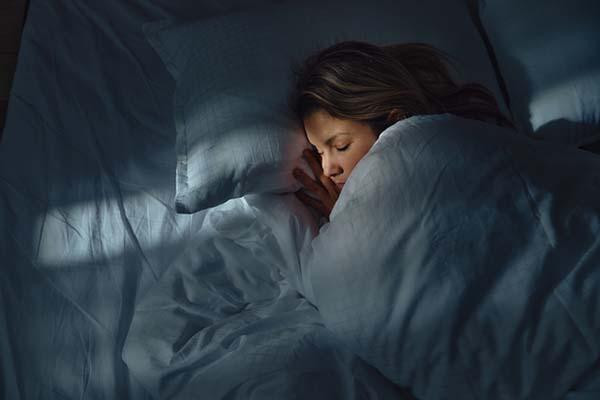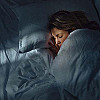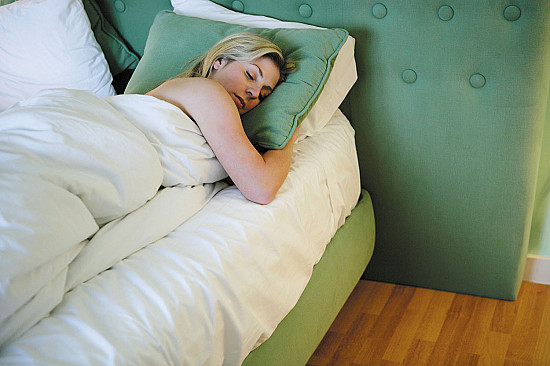Sleep hygiene: Simple practices for better rest
- Reviewed by Sogol Javaheri, MD, MPH, Editorial Advisory Board Member, Harvard Health Publishing

A good night's sleep is essential for good health and functioning. It revitalizes the mind and body, and prepares you to perform at your best the following day. Researchers define a good night's sleep in terms of quantity (not too little or too much) and quality (falling asleep quickly and staying asleep).
But many people don't sleep the amount needed to function at their best, or they spend too much time awake during the night. According to the CDC, more than one-third of adults in the U.S. don't get enough sleep — 14.5% have trouble falling asleep and 17.8% have trouble staying asleep. Good sleep hygiene can help.
What is sleep hygiene?
Sleep hygiene is a set of practices and routines that help you get better sleep. Adequate, good quality sleep allows your body to experience the physical maintenance and repair, immune system boost, and emotional and cognitive renewal that sleep provides.
Sleep hygiene encompasses:
- making your sleeping environment comfortable and conducive to uninterrupted sleep
- keeping a consistent sleep schedule of seven to nine hours per night for most adults
- following a bedtime routine that helps you fall asleep
- establishing daytime habits that optimize restful sleep at night
- tailoring these practices for your own best results.
Expert recommendations have traditionally emphasized going to sleep and waking up at the same time every day, including weekends. Although it is healthier to sleep consistently throughout the week, a 2023 consensus statement by the National Sleep Foundation suggests that after a week with insufficient sleep, it may be beneficial to get some catch-up sleep on weekends.
The amount of sleep we need varies by age and can be affected by each individual's unique health circumstances. The CDC offers sleep duration recommendations across the lifespan. Keep in mind that these are suggestions, and every individual may not have the same needs.
Tips for sounder sleep
Retiring to a comfortable environment with minimal disruptions makes it easier to fall asleep and sleep soundly. What you consume during the day and before bedtime also plays an important role.
Create a sleep sanctuary
- Reduce or mask noise. Heavy curtains and rugs can help absorb sound. A sleep machine that provides white noise, or a recording of soothing sounds such as falling rain, can mask outside noise.
- Minimize light. Consider light-blocking curtains or shades if outside lights shine into your bedroom.
- Replace your mattress and pillows if they're worn or uncomfortable.
- Most people sleep better in a room that's slightly cool. Keep room temperature around 65°F to 68° F at night.
- Only use the bedroom for sleep and intimacy.
- Have children and pets sleep elsewhere.
- Keep electronic devices and anything work-related in another room.
Don't let food and substances interfere with a good night's sleep
- Consume evening meals at least three hours before bedtime.
- Avoid alcohol in the evenings. Although alcohol can make you sleepy, after a few hours it becomes stimulating and may cause you to awaken and have difficulty falling back to sleep. It can also worsen snoring and reduces REM sleep, an important stage of sleep for cognitive function and mental health.
- Avoid caffeine after lunch if it keeps you awake at night.
- Nicotine is a stimulant. Avoid smoking, which can interfere with nighttime sleep (among many other detrimental health effects).
Create a relaxing bedtime routine
Reserve an hour before bedtime to wind down away from stressful, stimulating activities. Relaxing steps and rituals like these make it easier to fall asleep:
- Put away electronic devices, except if used for calming music or a guided relaxation routine.
- Read for pleasure in soft light.
- Take a warm bath.
- Do some easy stretches, progressive muscle relaxation, or deep breathing.
Overcoming common barriers to good sleep hygiene
Your actions during the day can affect your sleep that night. You can adjust your behaviors to support, rather than interfere with, nighttime sleep.
Schedule exercise and naps to support sound sleep
- For many people, exercising within two hours of bedtime interferes with falling asleep. For others, evening exercise is fine. Experiment to find the exercise timing that works best for you.
- Long or late afternoon naps may interfere with falling asleep at bedtime. Sleep experts recommend naps of half an hour or less, if needed, and not too late in the day.
Keep a sleep diary to identify possible obstacles
Track the following each day for at least two weeks:
- time you go to bed and wake up
- medications you take
- time and amount of caffeine or alcohol consumption
- time you eat dinner and anything after that
- when and how long you exercise
- what time you put down electronic devices and stop watching TV.
In the morning, note length and quality of the previous night's sleep, whether you awakened during the night, and for how long. Look for any patterns between your behaviors and your sleep duration or quality that may help you identify factors that are interfering with your sleep.
Work with a partner
Making changes to your daily routine can be hard to do on your own. If you live with a partner or roommates, you can help each other adopt and stick to recommendations for healthy sleep.
About the Author

Jessica Solodar, Health Writer
About the Reviewer

Sogol Javaheri, MD, MPH, Editorial Advisory Board Member, Harvard Health Publishing
Disclaimer:
As a service to our readers, Harvard Health Publishing provides access to our library of archived content. Please note the date of last review or update on all articles.
No content on this site, regardless of date, should ever be used as a substitute for direct medical advice from your doctor or other qualified clinician.















